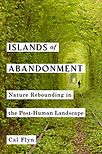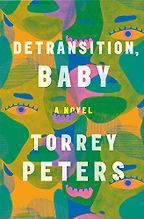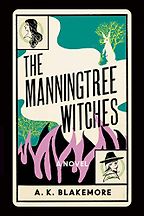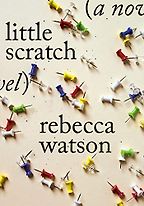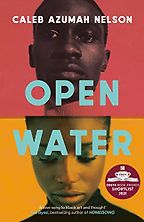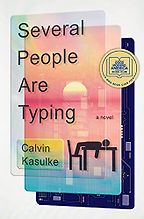It’s that time of year again. At literary magazines and supplements everywhere, professional readers and writers are casting their minds back, trying to recall the books that have most impressed and enthralled them. And far be it from me to pass up on an excuse to recommend my favourite reads; find below my personal selection of five of the best novels of 2021.
I feel duty bound to offer a quick disclaimer. I read a lot of fiction, and write regular round-ups on new and notable novels for this site, but every highlights reel is necessarily partial. Literature is subjective by nature, and fiction more so than almost any other form of writing. A best-of-the-year list is also, of course, limited by the author’s own reading habits. It’s simply not possible to read every new novel; even the Booker Prize judges, who in 2021 considered 160 books, have still only read a small proportion of the year’s total publishing output.
Nevertheless, I think it is still useful to compile these lists as a form of guidance to those looking for their next good read, but feeling overwhelmed by choice. To that end, here is my selection—five new novels that I admired, enjoyed and pressed into people’s hands over the course of the year.
Detransition, Baby by Torrey Peters
Torrey Peters’ Detransition, Baby took me—and the whole world—by storm when it burst onto the scene back in January. The story centres on an unexpected pregnancy: Ames, who until recently was living as a woman, has impregnated his boss and sometime-lover Katrina. Feeling unable to cope with the idea of traditional fatherhood, he proposes an unusual solution—that they invite his ex-partner Reese, a beautiful but self-destructive trans woman, to co-parent alongside them.
The result is a funny, provocative and often profound novel-of-ideas, in which Ames, Katrina and Reese debate amongst themselves what it means to be a woman, a mother, and a family, in a series of raw and open-hearted conversations—sometimes clashes—interspersed with illuminating episodes from Ames and Reese’s past and present lives. What’s particularly notable about Peters’ writing is her willingness to interrogate emotional complexity: Reese is motherly and a trainwreck all at once; Ames’ bland exterior holds a reality of many-layered secrets; Katrina prides herself on her open-mindedness, but soon finds herself out of her depth. It’s a book that does not shy away from the big questions, and I’ve thought about it a great deal since. I’d recommend it to anyone.
The Manningtree Witches by A.K. Blakemore
If we’re talking Puritans and witch trials, one’s mind immediately zips to Arthur Miller’s The Crucible, but A.K. Blakemore’s fiction debut is, I feel, perhaps more spiritually in tune with Yorgos Lanthimos’s deranged period drama The Favourite, or perhaps Hilary Mantel’s dryly humorous Wolf Hall. It’s a darkly sardonic story based on the real-life witch craze that took place during the early years of the English Civil War, when a self-declared ‘Witchfinder General’ took it upon himself to root out malefaction, moral corruption and heresy among the women left behind by their soldier husbands, sons and neighbours.
In real life, an estimated 200 women were executed for witchcraft during this period, and the trials dramatised in this book draw from contemporaneous accounts—although some characters and events have been altered. Nevertheless, Blakemore wears this research very lightly. The prose is deeply sensual and immersive; written in modern English but bejewelled with period-appropriate vocabulary. Blakemore is a published poet, and that comes through very strongly. Highly recommended.
little scratch by Rebecca Watson
This dazzling work of experimental fiction explodes the literary conventions in its recreation of its protagonist’s anxious, discordant stream of consciousness over the course of a single day, in the wake of a sexual assault. That might sound like hard work, but it’s an absorbing and often playful book, which made a deep impression on me.
When I spoke to Rebecca Watson earlier this year, she said: “I think that it began with the challenge of feeling that prose does not really represent the bombardment and overwhelming simultaneity of everyday live experience. There’s so much going on. But when we write prose, we have this very neat, linear way in which we inhabit a moment. So my challenge was to represent the opposite of that on the page.”
The result is fascinating, and I think anyone who writes themselves will find it quite inspiring. If you’d like to get a flavour of the novel, I suggest reading the award-winning short story that acted as the initial spark over at The White Review. An adaptation for the stage also recently opened at the Hampstead Theatre in London.
Open Water by Caleb Azumah Nelson
Nelson’s debut novel is a contemporary love story set in London. When two unnamed twenty-somethings, a photographer and a dancer, lock eyes from across a crowded room, they find themselves irresistibly drawn to one another. Their subsequent relationship—intimate but undefinable—and artistic collaboration forms the basis of this intense and lyrical novel, which also serves as a meditation on the making of art and the experience of being young and Black in modern Britain.
In some ways, it occupies similar ground to Sally Rooney’s Normal People, so if you snapped up Beautiful World, Where Are You the moment it came out, this is likely a book for you. Nelson takes some bold literary decisions—it’s written in the second person, and in a very distinctive, dramatic register—which I suspect may be divisive, but altogether this is an impressive, tender and deeply moving dissection of an intoxicating love affair.
Several People are Typing by Calvin Kasulke
I’m not normally a fan of comic novels, but I make an exception for Calvin Kasulke’s surreal office comedy, told entirely through the medium of Slack. In it, an underperforming public relations executive finds his consciousness mysteriously uploaded into the servers of the instant messaging system, while his body remains unharmed, comatose in his apartment. His increasingly frantic requests for help are assumed by his superiors to be merely an irritating improvisational ‘bit’—and one they are willing to overlook, now that he is always online and apparently never more committed to his work.
This is a compulsively readable novel that genuinely made me laugh out loud. I think it will appeal to anyone who has spent the pandemic working from home—read: almost everyone. Reminiscent of And Then We Came to the End, Joshua Ferris’s workplace novel told in the third person plural, it perfectly captures the choppy, polyphonic Greek chorus of a company’s #general channel. As one worker asks, rhetorically: “what is a workplace but a cult where everyone gets paid?” Is it a gimmick? Sure, but it’s one that I really enjoyed and I think you will too.
Part of our best books of 2021 series.
November 25, 2021. Updated: June 7, 2023
Five Books aims to keep its book recommendations and interviews up to date. If you are the interviewee and would like to update your choice of books (or even just what you say about them) please email us at [email protected]
Five Books interviews are expensive to produce. If you've enjoyed this interview, please support us by donating a small amount.

